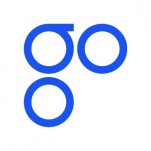 | OmiseGo (OMG)ICO A decentralized exchange, liquidity provider mechanism, clearinghouse messaging network, and asset-backed blockchain gateway. Unlike nearly all other decentralized exchange platforms, OmiseGo allows for decentralized exchange of other blockchains and between multiple blockchains directly without a trusted gateway token IMPORTANT: By investing in this business you agree to ourDisclaimer. All information including our rating, is provided merely for informational purposes. CryptoTotem does not provide investment advice. |
Overview
|
What is OmiseGo
OmiseGO is building a decentralized exchange, liquidity provider mechanism, clearinghouse messaging network, and asset-backed blockchain gateway. OmiseGO is not owned by any single one party. Instead, it is an open distributed network of validators which enforce behavior of all participants. It uses the mechanism of a protocol token to create a proof-of-stake blockchain to enable enforcement of market activity amongst participants. This high-performant distributed network enforces exchange across asset classes, from fiat-backed issuers to fully decentralized blockchain tokens (ERC-20 style and native cryptocurrencies). Unlike nearly all other decentralized exchange platforms, this allows for decentralized exchange of other blockchains and between multiple blockchains directly without a trusted gateway token. Markets may be able to significantly reduce spreads and encourage market assurance via decentralizing custody and increased transparency of market activity. This is achieved using smart contracts, protocol tokens enforcing correct market behavior of orderbook matching, a new construction of Ethereum bonded external enforcement of clearinghouse activity, and commitments to historical exchange data for use with Ethereum smart contracts.
The primary role of blockchains are to solve coordination problems among multilateral agreements between a network of participants. By ensuring transparency, assurance, and enforcement, we can enable multilateral agreements where they were not previously possible. When all parties are assured that the operations are not only transparent, but also the mechanisms are guaranteed to not change without significant effort, parties are more willing to coordinate. Participants have significantly higher guarantees that a single party has difficulty forcing other parties in the future into usurious rent extraction via a change in business processes or information asymmetry. In other words, any single participant is more willing to use systems where the business processes and mechanisms itself are not owned by any other single participant.
There is a fundamental coordination problem amongst payment processors, gateways, and financial institutions. For instance, a customer of a bank wishes to pay a merchant on another network. Traditionally, there have been significant efforts in engineering around payment systems which are compatible across payment networks and financial institutions. These are usually constructed by creating a clearinghouse which manages the interchange, usually via a messaging network with either a central counterparty clearinghouse or nostro/vostro accounts. Examples include FedWire, CHIPS, SWIFT, consumer card payment networks, NSCC/DTCC, OCC, and ACH. These networks service different roles and functions, including local/national payments, international payments, credit, equities/asset exchange, and derivatives. These centralized networks allow for the controlling entity to arbitrarily change the mechanisms, which result in significant amount of transaction costs via information costs, due diligence, and contractual enforcement between all parties.
We believe that there is currently a large emerging market of disruption in digital payments with new payment platforms (e.g. Venmo, Alipay, etc.). These networks have significant aversion to interchange across networks, as it usually requires significant overhead costs in trust with the interchange facility. Parties are unwilling to use central counterparties, as neither party wishes to defer to the other, and use of nostro/vostro accounts require bespoke contracts between participants. While the larger networks have significant incentive around protection of their network effects, we believe that there is a long-tail of entities wishing to provide eWallet services which require greater coordination amongst multilateral participants. These mid-size participants will be able to cross value across networks in order to reach sufficient network effects in usability. The infrastructure and reference frontend for these providers will allow for the network effects to be encoded into this network, allowing for emerging eWallet participants to instantly create high network utility.
Blockchains allows society to externalize the world’s business processes from single centralized corporations into open, decentralized computing networks. OmiseGO (OMG) is a network which decentralizes market liquidity, orderbook matching and execution, clearinghouse custodianship, and high-scalability payments to help resolve payments across these emerging eWallet payment networks.
By shifting these business processes traditionally placed into a single corporation, it is possible to provide eWallet providers an entire interchange process in a decentralized high-performant open network.
DetailsPublic sales: Jun 23, 2017 - Jul 23, 2017Token supply: 140,245,398.24513 OMG Soft cap: 8,000,000 USD Hard cap: 25,000,000 USD Raised: 25,000,000 USD LegalBlockchain Platform: EthereumRegistration country: Singapore | Token infoTicker: OMGType: Utility-token Token standard: ERC20 Token price in USD: 1 OMG= 0.35 USD Accepted currencies: BTC, ETH, Fiat Token distribution: Crowdsale token supply - 65.1% Team - 9.9% Airdrop - 5% OmiseGO reserve - 20% |
Project team





